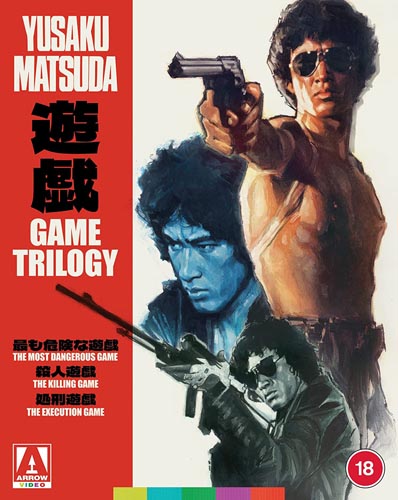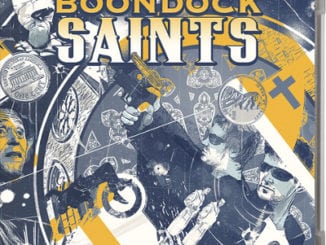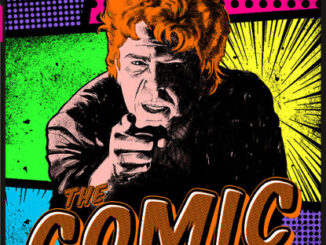Satsujin Yugi, The Killing Game (1978)
Directed by: Tôru Murakawa
Written by: Koji Hama, Susumu Saji
Starring: Kai Atô, Kei Satô, Kenji Imai, Kôjirô Kusanagi, Yûsaku Matsuda, Yutaka Nakajima

THE KILLING GAME (1978)
aka SATSUJIN YUGI
Directed by Tôru Murakawa
Japanese Language with English Subtitles
Released as part of GAME TRILOGY by Arrow Video
Five years after a successful hit on Tozan Group chairman, rock n roll assassin Shohei Narumi returns to the city of the crime, much to the delight of his pal Bunta. It’s not long before word about his certain set of skills gets around the city. Summoned by Katsuta, the boss of the Kotobuki gang, Narumi finds himself hired to take out rival gang boss, Hanai. As Narumi discovers, sticking his oar into a gangland feud is never one to go smoothly.
Having established Yûsaku Matsuda as the unconventional hitman Narumi in The Most Dangerous Game, the sequel THE KILLING GAME, also known in its native homeland as Satsujin Yugi, embraces the same rough and ready attitude, complete with its own blend of humour. This is showcased wonderfully early on in the movie when Narumi’s daft-as-a-brush friend Bunta is so giddy to see him he ends up toppling into the water quayside. The fun and frolics continue as the two join forces to work as debt collectors, providing some hilarious scenes as they publicly shame and humiliate men who owe money to female escorts. Once again, like Narumi’s nous in luring men out of hiding using their mistresses, the plan works like a treat! Seeing the two together is quite refreshing as, previous to this, Narumi comes across as quite the lone wolf. Whilst that is still the case where his hit work is concerned, he’s not averse to working in partnership.
On paper, the plot of THE KILLING GAME should be more exciting than it is, but unfortunately it never seems to really hit the mark. Whilst there’s some violence and brutality involved, it all feels a bit disjointed and lacklustre. Part of the reason could be the storyline’s focus on the daughter of the Chairman he assassinates. In the opening scenes of the film, Narumi lets her go free after holding her hostage, opting to play a game of Russian roulette with her. When he returns to the city five years later, he bumps into her once again, and she’s enjoying her freedom as the Madam of Club Arabica in the Ginza. In reality, her ties with Katsuta leave her in an awkward position when she grows feelings towards Narumi. It’s not long before Katsuta hires Narumi to target rival Hanai on the premise of money upfront and the rest when the job is complete, but the unaware Hanai is also interested in acquiring Narumi’s services. The chairman’s daughter’s presence is a recurring one, but has very little impact to the core of the story, even though it feels like it’s at the heart of it the way it constantly circles back to her. From my own point of view, it just seems like an added distraction that slows down the action and is there merely to show Narumi’s own vulnerability as a man. Oh, and to add a sex scene.
Tonally, THE KILLING GAME is a more serious affair than the first film once it gets stuck into the core of the plot. It still plays upon the noir styling, complete with jazz score, but loses the energy that the first film had. Almost like a detective thriller in its approach, it’s slow and lumbering, but thankfully showcases more of the combat scenes in the light rather than in darkness so at least this time round we can see more of the on-screen action.
Though it works as both a standalone movie or as a sequel, THE KILLING GAME only just has enough substance to keep the momentum going. There’s nothing here that will really shock and surprise, with the first movie providing more of an impact than this instalment has to offer, despite the tantalising story of a hitman finding himself in demand from both sides of the fence.
The second disc on the Arrow Video GAME TRILOGY Blu-ray hosts THE KILLING GAME and features a 17 minute interview with Yutaka Oki, an old friend of star Yûsaku Matsuda who owns the Lady Jane jazz bar in Shimokitazawa in Tokyo. He talks about his friendship with Matsuda and how they both started out in theatre troupes. Oki also discusses the origins of his bar, his love for jazz, and how Matsuda and he bonded over music and drink, to which he broadened Matsuda’s palate. He also gives a bit of background on Matsuda’s approach to TV, film and commercials and talks about how he managed to be included on the closed set of Black Rain despite having no film involvement.
Other special features on the disc include an audio commentary with Earl Jackson, and writer and critic of Japanese cinema, Jasper Sharp, providing background on The Killing Game, a theatrical trailer and 31-still image gallery.







Be the first to comment